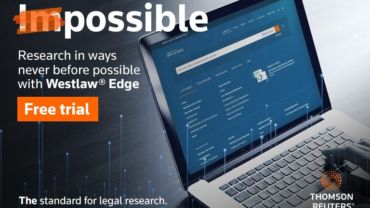As we move further into 2022, employers and employees are going to be facing ongoing and new challenges in dealing with legal restrictions and rules around employment
In the coming year, challenges around legal restrictions and rules involving employment will be impacted by several factors. For example, companies’ continued response to the global COVID-19 pandemic will bring more questions about vaccine mandates, reasonable accommodations, and remote working issues that outside labor lawyers and in-house legal counsel will need to address and understand.
Further, employers are also going to have to be mindful of new employee policies pertaining to booster shots, OSHA guidance and rulings, and certain leave policies, as the pandemic continues and COVID-19 cases increase.
Here are some key issues to watch:
Religious & medical accommodations — A religious or medical accommodation is often times requested by an employee when a conflict arises between a specific task or position that the employee cannot fulfill due to a medical or religious reason. Today, this means that the vaccine requirement may create a need for an accommodation where an employee cannot fulfill that requirement due to medical or religious reasons.
On December 15, 2021, New York City released guidance on its private employer vaccine mandate that began on December 27. This mandate requires workers in New York City who perform in-person work or interact with the public to show proof they have received at least one dose of a COVID-19 vaccine. Consequently, for a lot of in-house attorneys this means putting together guidance for their companies’ Human Resources departments on how to start surveying the employee population to determine who is unvaccinated and may need a medical or religious accommodation. Obviously, this will start an interactive dialogue process; and since every accommodation is unique and fact-specific, employers will have to ask questions narrowly tailored to each situation.
When engaging in this interactive dialogue process, it is important to ask how the employee’s medical condition or nature of the employee’s religious belief precludes the employee from receiving the vaccine. This may require a deep dive into questioning someone’s beliefs, especially if they do not seem credible or sincerely held. Local and state jurisdictions may also provide additional clarification. In Texas, for example, an employee may decline vaccination based on a previous COVID-19 infection; and in Alabama, employers must also exempt employees from vaccine mandates if an employee presents evidence of COVID-19 antibodies or a past diagnosis of COVID-19.
Privacy & productivity concerns with remoting working — As return-to-work and hybrid scheduling continues into 2022, considerations for how employers monitor productivity without breaching privacy and confidentiality issues will become a bigger issue.
Employers that want to implement certain surveillance tools may be breaching privacy boundaries for employees; however, there are certain legal circles that advocate for certain surveillance tools that are legal.
Paid family leave laws — Paid family leave laws and coverage increased over the past few years in addition to a push for a federal mandate for paid family leave. Paid family leave provides eligible employees job-protected, paid time off to bond with children (newborn, fostered, or adopted), care for ill family members, and assist loved ones for care during military deployments. Paid family leave may also be available in some situations when an employee or their minor, dependent child is under an order of quarantine or isolation due to COVID-19.
The expectation among many state and federal legislators is that attention to paid family leave will only increase. In 2016, for example, New York state enacted the nation’s strongest and most comprehensive paid family leave policy specifically for working families. In November 2021, Governor Kathy Hochul signed legislation to further expand paid family leave to cover siblings, which goes into effective January 1, 2023.
Also, California introduced SB 83 in 2021, and Governor Gavin Newsom pushed to extend the maximum duration of paid family leave from six weeks to eight weeks, also allowing birth mothers to take an additional six to eight weeks to recover from childbirth under the state’s disability insurance program. SB 83 is expected to expand even more to six months of bonding time in 2022.
OSHA, vaccine mandates & the Supreme Court — The Biden administration’s vaccine mandate, the lawsuits against it, and the Supreme Court’s pending decision on the emergency mandate signed into law late last year is another issue watch. (Currently, the Court is hearing argument on the emergency mandate ordered by the Occupational Safety and Health Administration (OSHA) that required employers with 100 or more employees ensure those employees were vaccinated or have them provide a weekly negative COVID-19 test. The Court is expected to issue a ruling in the case in early February.)
For employers and in-house lawyers, if this mandate continues to stand, it will be the employer that needs to facilitate, fund, and coordinate all aspects of the COVID-19 testing for employees. In-house lawyers should be on top of the accommodation process as well as keeping track of keeping their companies in compliance with the mandate.
Mental health days — Many companies in 2021 started offering mental health days for employees. This was in large part due to the stressful effects of the pandemic and a continued trend of remote working. Questions now are arising however about how these days will be counted — for example, are employers compensating workers for these days? How many days should employees be given and for how long? Again, for in-house lawyers, this means working with their companies’ HR department to make sure employee policy handbooks are updated to reflect any changes to state law in 2022.
As much uncertainty continues going into 2022, in-house counsel and HR professionals need to closely monitor all updates and policy changes that pertain to any employment laws and workplace processes. Indeed, it’s crucial for both in-house counsel and HR professionals to work together to better create fluid operational and business plans for employers and incorporate these impending changes in 2022.







